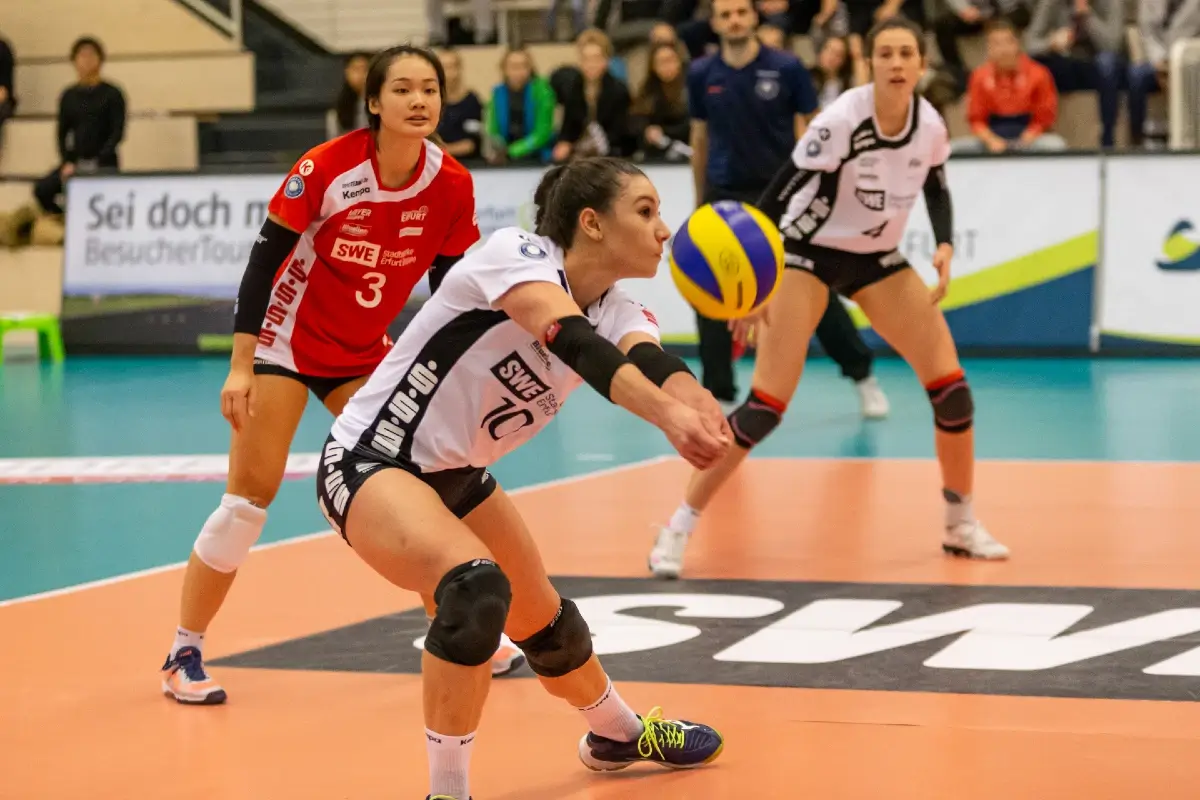Last Updated: February 16, 2024
While a defensive specialist may not necessarily be the most spectacular player in a volleyball team due to lacking skills like kills or blocks, the truth is this position is crucial for defense. On the same note, it’s imperative to have a good defensive specialist in the team for superior back row passing.
While there are certain rules to master the position, both written and unwritten, here are a few extra tips to excel in the role.
Mastering the Defensive Specialist Role

1. Plan Consistency
Consistency is critical for this role. You don’t want to do everything by the book for a few minutes, only to let your teammates down later on. You need to find your balance and make sure you’re consistent in your game.
Some digs are more difficult than others, fair enough. You can save some of them in a miraculous manner, but you may also fail every now and then. However, consistency is a plus when it comes to passing, so that should be your main focus.
2. Observe the Opponent Offense
As a specialist defender, you must keep the radar on opposite hitters. Pay attention to their approach, how fast they are, how their shoulders move, how fast their arms move, how high the elbow gets, the wrist, and so on.
The better you are in observing the opponent hitter, the easier it becomes to anticipate the direction of the ball. As a result, your saves will be better, but you’ll also be able to plan passes in a more effective manner.
3. Watch the Ball All the Time
Observing a hitter is important, but at the same time, you need to keep an eye on the ball at all times, too. It sounds difficult, but it’s doable. Even if it’s not ready for a hit, the ball can indicate a certain tactic, which you can anticipate later on in the game.
Keeping an eye on the ball increases the chance of digging it.
You may have to be flexible because you won’t always be able to see the ball, so move around as often as you need.
4. Train on Speed
As a defensive specialist, you’ll need to watch the hitter, pay attention to their hit, watch the direction of the ball, and react. This means you’ll be a fraction of a second behind the hitter in terms of speed. This is one of the reasons wherefore being a good observer is a must.
But at the same time, you could be surprised by different techniques every now and then. Since you’re supposed to react after the hitter hits, you need excellent speed on your feet, so train your footwork on a regular basis.
5. Learn to Shift Your Weight
Some defensive players believe it’s easier to react when your weight is on your heels. This isn’t always the case. Sure, there are situations when you could do it by shifting your weight on the heels. But most commonly, you’ll need to be on your toes.
Every now and then, you’ll have to be able to shift the weight without losing balance. Being on your toes gives you a more explosive reaction, but even so, make sure you can adjust everything on the go while still keeping your balance.
6. Hitter’s Hands Come First
While normally you should watch everything when it comes to opponent hitters, hands will give you more clues about where the ball will go.
Pay attention to the hands, the way they’re going, as well as the wrists. That’s where most of the action is. Unfortunately, many defensive specialists overlook this small aspect.
7. Communicate
You’re wrong if you think communication is important for the libero only. Communication is just as effective in defense and not necessarily while defending, but while attacking.
You have a better field of view, so you can let your teammates know what the opponents are doing, not to mention their weak spots.
Final Thoughts
Being a good defensive specialist does require skills and a lot of work. And unlike most expectations, this position isn’t all about the actual defense.
It’s also about observing, not to mention letting your teammates know about all the small issues you may notice with your opponents. After all, volleyball is a team based game, and you need to act accordingly.
